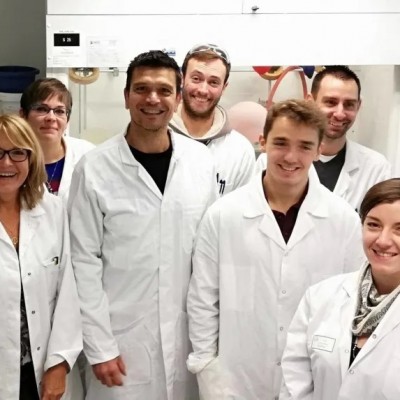Charity dedicated to the fight
against childhood cancer
against childhood cancer
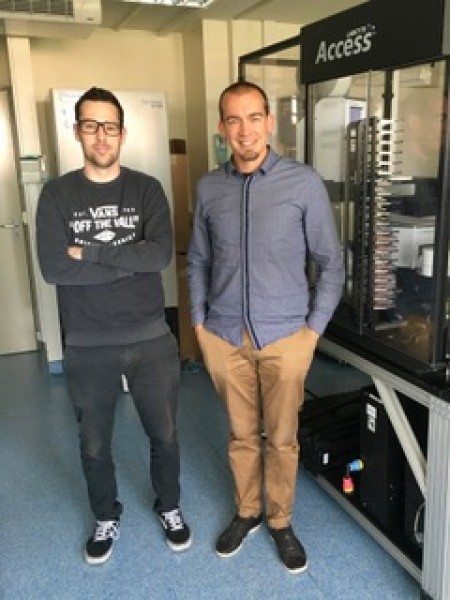
Dr Pasquier's research work mainly focuses on the repositioning of drugs which consists of testing, in new therapeutic indications, drugs already approved by the health authorities. The aim of this work is to identify new therapeutic targets for the most difficult to treat cancers and thus improve the care of patients suffering from these aggressive forms and refractory to treatment . In particular, pediatric cancers (neuroblastoma), brain tumors affecting children as well as adults (glioblastoma, medulloblastoma) as well as certain rare forms of cancer (angiosarcoma).
Why did you choose to focus your research on childhood cancer?
This is a huge question that I have had the opportunity to think about a lot in recent years because it comes up often. I tend to think that it was the circumstances of life that led me to pediatric oncology research, and it is the passion that keeps me from doing anything else in my life now. When I was 12, I suffered from quite severe facial paralysis and had to be hospitalized in a pediatric oncology department because there was a suspicion of a brain tumor. Looking back over the years, I think that this experience left a deep mark on me and when I left the hospital, safe and sound, I probably had a form of "survivor syndrome" which pushed me, unconsciously, towards this professional path. In addition, I had certain learning facilities and I took great pleasure in studying. It is therefore naturally that I headed for long studies. And finally, when I was a Master 2 student, I had the chance to be supervised by 2 exceptional young researchers, Dr Manon Carré and Dr Nicolas André, who both transmitted to me their passion for pediatric oncology.
Can you tell us about the team that works with you?
The research team to which I belong (Structural Biology and Integrated Chemistry-Biology) within the Marseille Cancer Research Center aims to identify new therapeutic targets by focusing on protein-protein interactions. Within this team, I lead a small group that focuses on drug repositioning. This group is made up of a thesis student, pharmacy intern Jérémy Ariey-Bonnet, who works mainly on glioblastoma (an incurable brain tumor) and a Master 2 student, Rébecca Aim, whose research project is focused on acute myeloid leukemia. My short-term objective is to recruit staff (students, engineers and post-docs) in order to be able to further develop my research projects in pediatric oncology. In addition, I work very closely with the nursing teams of the Hematology and Pediatric Oncology department of the Hôpital de la Timone, and in particular Prof. Nicolas André, with whom I design most of my research projects in order to facilitate the transfer to the clinic and thus guarantee the real-world application of our laboratory research.
Concretely, what is the use of the money entrusted by the association Eva pour la vie? Is this an important help for you, for your project?
The financial support that I receive from the Eva pour la vie association is absolutely vital to my research activity. It is very simple. Without this support, my research projects on childhood cancer would simply be on standby for lack of funding (despite more than 10 funding requests submitted each year). The money entrusted to me will allow me to pay for the consumables necessary to carry out the experiments essential for transferring our results to the clinic. We have in fact identified several drugs, used in clinics for applications as varied as arterial hypertension, parasitic infections or certain psychiatric disorders, which were able to increase the effectiveness of standard treatments against certain forms of cancer of the prostate. 'child. We must now validate these results in order to be able to set up clinical trials. It's at this crucial stage that Eva's Lifetime Support comes in.
The EPLV association is at the initiative of a process aimed at obtaining from the State a law guaranteeing a fund dedicated to research on cancers and incurable diseases of the child, as well as an improvement of aid to families. She is also co-founder of the Federation Grandir sans Cancer, at the origin of a manifesto that you have co-signed. What do you think of these initiatives?
I fully support the efforts of EPLV and the Federation Grandir sans Cancer because I believe that they are absolutely essential. It is very sad to say but the fact is that one of the main drivers of medical research remains the prospect of financial profits for the pharmaceutical industry and the biotechnology companies. Not many people know this, but private companies fund the vast majority of clinical trials around the world. When working on drugs that are no longer patented, for applications in pediatric oncology (and therefore a very small potential economic market compared to adult cancers such as breast, prostate or lung cancers) , it becomes extremely complicated to obtain financing. And setting up clinical trials becomes an even greater challenge. It is therefore the role of the State to replace private companies and guarantee targeted funding for research that may have an impact on public health, but which has little prospect of immediate financial benefits.
November 2019
The support provided by the Eva pour la vie association has enabled Eddy Pasquier's team to undertake 2 complementary approaches to identify the molecular targets of two classes of drugs with promising anti-cancer properties: beta-blockers and antihelminthics. from the class of benzimidazoles. The first approach, called in silico, is based on the use of a predictive algorithm while the second is based on the use of click chemistry. Their mass spectrometry analyzes have made it possible to identify several new therapeutic targets in gliomas and neuroblastoma. The results open important perspectives not only for the characterization of the anti-cancer mechanisms of action of drugs in general, but also for the understanding of the biology of tumors of the central and peripheral nervous system.
Click here for the detailed report .
November 2020: A new study in the fight against glioblastoma
A new publication on the role of mebendazole and the antihelminthic MAPK14 (p38alpha) in the fight against glioblastoma has just been published on the scientific journal Molecular Oncology: https://febs.onlinelibrary.wiley.com/doi/10.1002/1878- 0261.12810
Eddy Pasquier's team decided to explore the mechanism of action of this drug, which is currently reused for the treatment of brain tumors (3 clinical trials in progress) by using an algorithm in order to predict new molecular targets for this drug.
The algorithm works by first looking for compounds with similar structures and chemical characteristics (among 607,659 molecules), then querying ChEMBL (or ChEMBLdb, a manually organized chemical database of bioactive molecules with drug-like properties. ) to list all known molecular targets. This generated a list of 21 putative molecular targets for mebendazole, four of which had previously been shown to be modulated by drugs of the same pharmacological class. Of these targets, 12 were significantly upregulated in glioblastoma compared to normal brain tissue, including 4 major kinases: VEGFR2 / KDR, MAPK1 / ERK2, ABL1 and MAPK14 / p38alpha.
As the kinase activity of KDR had already been shown to be inhibited by mebendazole, Dr. Eddy Pasquier's team focused their experiments on the 3 other kinases (MAPK1, ABL1 and MAPK14).
The analyzes revealed that mebendazole could inhibit all 3 kinases, with a particularly high potency against MAPK14. The team then used a panel of biophysical and biochemical tests to characterize the interaction of mebendazole with MAPK14. Thermal displacement assay (TSA), isothermal titration calorimetry (ITC), and nanoscale differential scanning fluorimetry (nanoDSF) all confirmed that mebendazole can interact directly with MAPK14.
Molecular modeling predicted how mebendazole interacts with the catalytic site of MAPK14 to inhibit its kinase activity and the nanoBRET assay was used for orthogonal validation in living glioblastoma cells. Finally, RNA interference was used to stop the expression of MAPK14 in glioblastoma cells and revealed that this kinase is involved in the growth of tumor spheroids and the response to treatment with mebendazole.
This study suggests that targeting MAPK14 with mebendazole or other pharmacological inhibitors represents a promising strategy to improve the efficacy of chemotherapy in cancer, including the efficacy of temozolomide against glioblastoma. This project was financially supported by the Eva pour la vie association and the A * MIDEX Foundation.
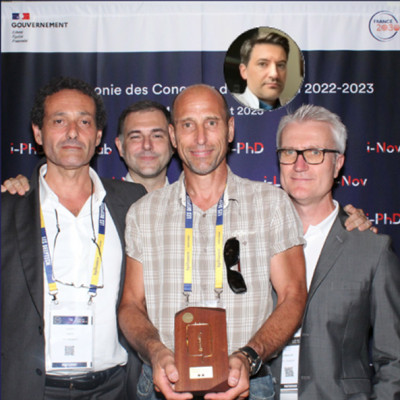
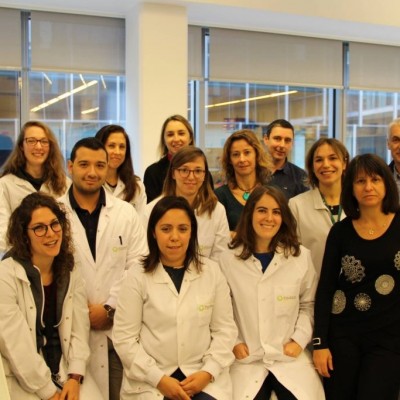
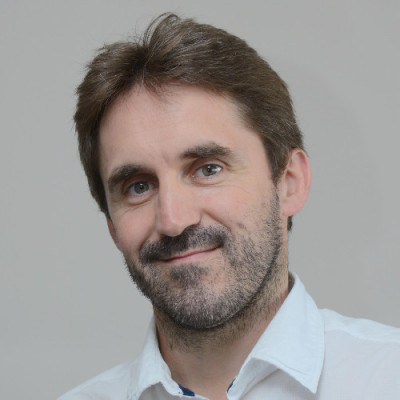
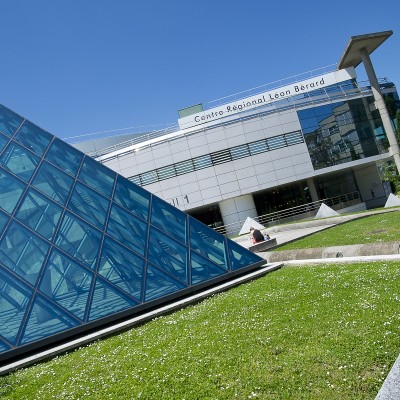
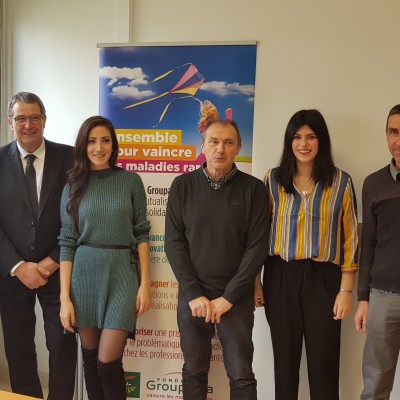
For more than 20 years, this teacher-researcher has been working on cancer. And it's been almost 10 years since he went to kidney cancer or renal cell carcinoma. By joining the team of Dr Christophe Grosset (Inserm, MiRCaDe team), he wanted to use his experience and take a new step forward by working on childhood cancer. He is the initiator of an ambitious project, which involves several surgeons, doctors and international researchers, on the study of nephroblastoma (or Wilms tumor) in children, co-funded by the association Eva pour la vie and Aidons Marina ...
Resistance to treatment is a major clinical problem, in particular in the case of osteosarcomas, bone tumors affecting children or adolescents. Indeed, chemotherapy, associated with surgery, is the central pillar of current treatment. However, many osteosarcomas are or become resistant to these antiproliferative drugs. Recurrences and / or the appearance of metastases are then frequent. 2 out of 5 patients cannot be cured! Osteosarcoma is therefore a pediatric cancer with a poor prognosis for which it is absolutely necessary to identify ways to counteract resistance to treatment in order to improve the chances of recovery for patients.
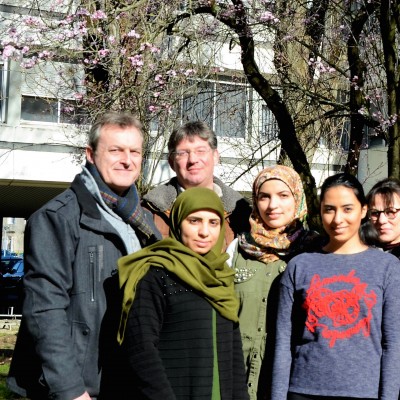
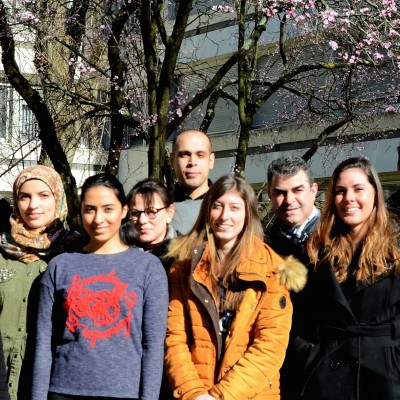
Since September 2014, Dr Martin Hagedorn has been leading a team of researchers (Caroline CAPDEVIELLE , Farah RAHAL, Justine CHARPENTIER and Mélissa MENARD) which devotes its research work to the identification of new therapeutic targets in brainstem tumors and to the improvement of its treatment methods. Work recognized by several European scientific teams & experts.
The work of the INSERM team co-directed by Dr Marie Castets (CR1 Inserm, HDR) and Dr Jean-Yves Blay (PUPH, HDR) focuses on cell death and cancers. Thanks to the support of Eva pour la Vie (55,000 euros) and other associations, this team is currently developing these lines of research on rhabdomyosarcomas, osteosarcomas and neuroblastomas ...
